Listing approximate price of Cornea Transplant and some related procedures. The prices may change depending upon the centers and condition of the patient.
| Treatment name | Cost range |
|---|---|
| CORNEA TRANSPLANT | USD 11700 to USD 14300 |
| CORNEA TRANSPLANT | USD 11700 to USD 14300 |
| Cornea Transplant | USD 5130 to USD 6270 |
| Corneal Transplantation - Eye Transplant | USD 6300 to USD 7700 |
Popular Cities in Turkey for Cornea Transplant are:
Listing popular specialists:
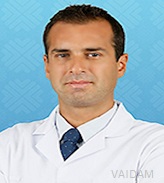
Professor, 20 years of experience

Vitrectomy, Glaucoma treatment, Oculoplasty, Strabismus
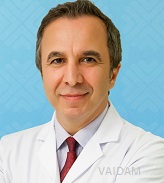
Professor, 19 years of experience

Cataract surgery, Vitrectomy, Glaucoma treatment, Pediatric eye diseases, Corneal diseases

Professor, 30 years of experience

glaucoma the cornea the retina uveitis refractive surgery pediatrics neuro-ophthalmology plastic and reconstructive surgery ocular oncology
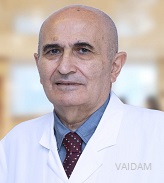
Head of Department, 35 years of experience

General Eye Examination, Glaucoma, Corneal Diseases, Conjunctival Diseases, Corneal Transplant

Dr. Hatice Semrin Timlioğlu İper
Consultant, 25 years of experience

Cataract astigmatism Myopia Retina Problems Visual Impairments Eye Inflammation Strabismus Eye pain Stye Retinal Detachment yellow spot disease Macular Hole Popular Flight and Vitreolysis
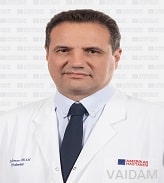
Associate Professor, 26 years of experience

Amblyopia Astigmatism Conjunctivitis (Pink Eye) Corneal Dystrophies Diabetic Retinopathy Dry Eye Glaucoma Hyperopia Macular Degeneration Myopia Presbyopia Retinal Detachment Strabismus Uveitis

Professor, 17 years of experience

Amblyopia Astigmatism Conjunctivitis (Pink Eye) Corneal Dystrophies Diabetic Retinopathy Dry Eye Glaucoma Hyperopia Macular Degeneration Myopia

Consultant, 37 years of experience

Amblyopia Astigmatism Conjunctivitis (Pink Eye) Corneal Dystrophies Diabetic Retinopathy Dry Eye Glaucoma Hyperopia Macular Degeneration Myopia Presbyopia Retinal Detachment Strabismus Uveitis
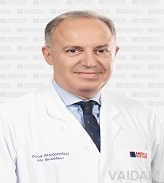
Consultant, 34 years of experience

Amblyopia Astigmatism Conjunctivitis (Pink Eye) Corneal Dystrophies Diabetic Retinopathy Dry Eye Glaucoma Hyperopia Macular Degeneration Myopia Presbyopia Retinal Detachment Strabismus Uveitis

Senior Consultant, 31 years of experience

Eye Examination for Retinoplasty of Premature Lens Diseases Lyme Disease (Borreliosis) Eye Irrigation Glaucoma General Eye Examination Cornea Conjunctiva

Consultant, 18 years of experience

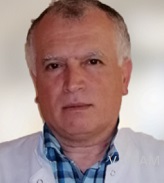
Senior Consultant, 19 years of experience

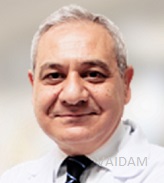
Senior Consultant, 20 years of experience

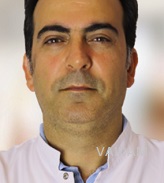
Senior Consultant, 20 years of experience

Cornea Transplant Laser Surgery Cataract Vitreoretinal Surgery Oculoplasty
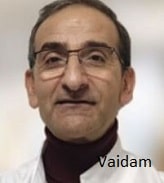
Senior Consultant, 21 years of experience

Visual Field Glaucoma External Ocular Surgery
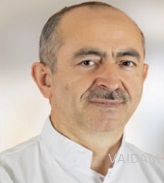
Consultant, 19 years of experience

General eye examination Intraocular drug administration Diabetic retinopathy Glaucoma treatment Strabismus surgery Cataract surgery
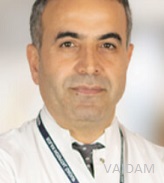
Consultant, 19 years of experience

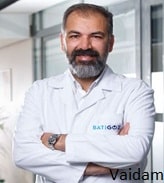
Consultant, 30 years of experience

Eye Treatment with Laser Excimer Laser Presbyopia Cataract

Consultant, 16 years of experience

Cataract, Refractive surgery, Myopia, Hyperopia, Astigmatism
Our Services for Cornea Transplant in Turkey
Transparent - Professional - Without Hassles
A cornea transplant (keratoplasty) is a surgical procedure to replace part of your cornea with corneal tissue from a donor. It is NOT a major surgery.
Most corneal transplants last well beyond 10 years.
You'll probably remain awake during the transplant but you may receive a sedative to help you relax. Your surgeon will inject local anesthetic around the eye to prevent pain and to keep your eye muscles from moving.
Your eye colour will not change after a corneal transplant.
In favorable subjects the rate of success of corneal transplantation may be as high as 90%.
Your eyesight should gradually improve a few weeks after a corneal graft but it could take anywhere from a couple of months up to a year to have stable vision in the eye that receives the donor tissue.
For transplant procedures that use a gas bubble inside the eye to help position the transplanted tissue the surgeon may ask you to lie flat sometimes during the day and sleep flat on your back at night for a few days.
Cornea transplant is the surgery which is used to remove all or part of damaged cornea and then replace it with healthy donor tissue; it is used to improve sight and relieve pain and to treat severe infection or damage.
You may be the candidate for corneal transplant if you are having problem in vision due to keratoconous or other condition which causes cornea to become thinner. You may also need transplant if you have any scar due to previous injury or infection.
Cornea transplant is a very safe procedure but it there is always some risk of the procedure such as an eye infection and its pressure increases within the eyeball.
The success rate of corneal transplant 91% some of the indications of corneal transplant is keratoconus, bullous keratopathy and failure of previous graft. Most common causes of graft failure were rejection, infection and glaucoma.
Its an 1 hour procedure.
Corneal transplant will usually take less than an hour depending on your condition whether you should be in the hospital or you need overnight stay. If transplantation of outer cornea is needed then new cornea is being held in place with stitches.
You will be given local anaesthesia around your eye region to block pain and prevent eye movement during surgery.
There is various methods of doing corneal transplant
Full Thickness Corneal Transplant- All the layers of your cornea get replaced. The new cornea is get stitched, this procedure is only needed if you have severe corneal injury or bad bulging or scar formation.
Partial Thickness Corneal Transplant- Air is injected to lift off and separate the thin layer outside and the thick middle layer of cornea and then removes and replaces them.
Endothelial Keratoplasty -The surgeon removes the endothelium and they replace them with a donated endothelium and Descemet membrane still attached to the stroma (the cornea's thick middle layer) to help in handling the new tissue without damaging it.
Fuch's dystrophy- This involve removal of the central part of the inner membrane without a transplant, if the surrounding cornea seems healthy enough to provide cells to fill in the removed area.
You will probably be able to return to work or your normal routine in about 1 to 2 weeks after surgery but your vision will still be blurry and you will need to avoid heavy lifting for about 4 weeks
You must not drive on the day of your cornea transplant. Someone must drive you home after surgery and bring you back for your follow-up visit. If you have good vision in the non-transplant eye you can legally drive 24 hours after surgery.
Medicines will be given for 6 months.
It will take up to a year to recover completely from corneal transplant but most people can go back to normal routine within one to two weeks but they should avoid lifting heavy objects. You should wait for minimum four weeks before lifting any heavy objects.
Most of the cases of corneal transplant last beyond 10 years, patients require ophthalmic checkup for twice in a year to make sure that they eye health are good. The cornea donor tissue is thoroughly inspected for its safety.
Some of the risks of corneal transplant includes infection, bleeding, higher pressure in eyes, clouding of eye lens, swelling of the cornea and detached retina.
Most of the people can see the result of the procedure when there vision is restored but it will take few weeks to improve the vision completely, your eyesight may get little worse before getting better.






NABH Certified Healthcare Discovery Platform
Vaidam is NABH certified healthcare discovery platform that will connect you to top-notch medical experts, hospitals, wellness options, and trusted travel partners to help identify and make the right healthcare choices.

Researched & Personalized Treatment Plan - Under One Roof
You can search for the best hospitals, read about them, view photographs of the facilities at the hospitals and the places at which the hospitals are located, and check the cost of treatment.

Quality Treatment Within Your Budget
As soon as you post an enquiry, the patient relation team will collect details from you, share them with the doctors and hospitals on Vaidam's panel, and get a personalized treatment plan. We research to get quality treatment within your budget.

Treatment to Travel
Vaidam concierge assists patients, to get medical Visa, the best airline fares and arrangements for your stay. Our concierge also helps you with daily travel, language, and food concerns. Vaidam does everything to be your perfect host. All of Vaidam’s services are free of cost to patients.

International Reach
Vaidam Health has network in 15+ countries, which includes India, Turkey, UAE, Germany, South Korea, Thailand, Malaysia, Spain.
Note: Vaidam Health does not provide medical advice, diagnosis or treatment. The services and information offered on www.vaidam.com are intended solely for informational purposes and cannot replace the professional consultation or treatment by a physician. Vaidam Health discourages copying, cloning of its webpages and its content and it will follow the legal procedures to protect its intellectual property